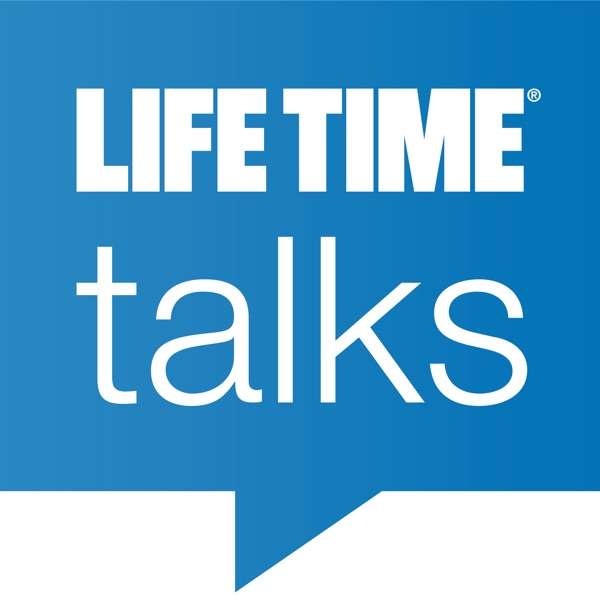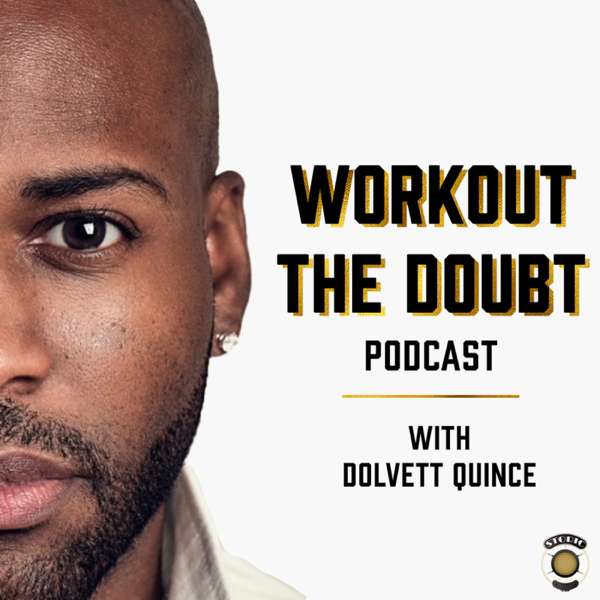This show covers an incredibly rich and informative article on DrJackKruse.com dealing with how our circadian clock affects our hormone function and all aspects of our biology. We’ll travel around the 24-hour clock and enjoy 21 different insights about hormone and metabolic function from extreme biohacker and anti-aging expert Dr. Jack Kruse.
This guy is WAY out there at the extreme edge of health and that’s what makes him someone worth checking into. I understand that he has his critics and second guessers, but he is clearly highly advanced in his thinking, scientific research and life experience as a neurosurgeon.
In this episode, he shares how his life turned in 2007 when he injured his knee surgery at 357 lbs and decided to get healthy. He started studying like crazy, reading through thousands of research articles, and landed in the area that claimed, “Obesity is not the result of too many calories, not enough exercise or living a slothful existence. Obesity begins in the eye because of an altered spectrum of light.” No one understands how artificial light is the driving force behind modern neolithic diseases tied to mitochondrial dysfunction. That is Dr. Kruse’s sole focus now: he aims to teach people the world of quantum biology.
Dr. Kruse lost 133 pounds in one year and started curing patients at his Nashville clinic to eventually develop his “Leptin Rx Reset,” a protocol that acts as a brain surgery without ever using a blade, completely rewiring the hypothalamus by aligning with our natural circadian rhythms and mastering the “timing” of our evolutionary blueprint. His findings include:
- The timing of when you eat is more important than what you eat: seeing sunlight in the morning is critical,
- Snacking or eating “small meals” every 2-3 hours as commonly advocated by conventional medicine all but guarantees life-long obesity.
- Anyone can lose massive amounts of weight without ever counting a calorie.
- Rigorous cardio exercises (like long distance running or chronic cardio routines) leads to stem cell reduction and shaves years off the end of your life.
- Eating fats, which conventional medicine told us to shun, is ideal for Optimal Health.
We will have to work through a ton of scientific terms and concepts, but my goal is to do my best to distill the message into simple and actionable takeaways that can improve your health as I go through 21 separate insights from this comprehensive article published at Dr. Jack Kruse’s longevity-focused website, taking you through a 24-hour day.
First, ask yourself: How does your day begin, and how does it evolve? Here goes the story of the modern “warm adapted” human circadian cycle. Oh yeah, Dr. Kruse is a huge cold exposure enthusiast and takes his ice baths for up to an hour! We’ll learn about how cold therapy can positively impact metabolism and health, especially for post-menopausal women who feel like they’ve been tripping out!
You will hear a lot about a couple of hormones, so I want to define them right out the gate:
Leptin, a hormone released from the fat cells located in adipose tissues, sends signals to the hypothalamus in the brain. This particular hormone helps regulate and alter long-term food intake and energy expenditure, not just from one meal to the next.
Prolactin is most commonly known as what prompts manuf of breast milk, but has a number of other important metab functions. It also regulates behavior, the immune system, metabolism, reproductive systems, and many different bodily fluids. This makes it a crucial hormone for overall health and well-being, for both men and women.
Production of prolactin is controlled by two main hormones: dopamine and estrogen. These hormones send a message to the pituitary gland primarily indicating whether to begin or cease the production of prolactin. Dopamine restrains the production of prolactin, while estrogen increases it.
Our brain wakes up with a morning surge of cortisol. That is what turns our brain on at 6am. VIP (vasoactive intestinal peptide) helps do this in long light cycles. VIP is highest at 6am, and lowest at 6pm.
Ghrelin is also highest in the morning. Ghrelin is a prominent hunger hormone made in the stomach that has a half-life of one hour. Ghrelin sends a signal directly to our pituitary gland and it influences our metabolism. This is why the circadian cycle in the stomach in the morning is critical to optimal health. Kruse talks about the Leptin Rx reset protocol on his blog.
You’ll hear about leptin a lot in this story. It’s the prominent satiety, fat-storage hormone, and its main role is to prime you for reproductive fitness — our most basic and important biological drive. When leptin signaling is efficient between the brain and digestive system, you eat an optimal amount of calories. When leptin signaling is compromised due to assorted adverse lifestyle practices, you don’t get the satiety signal and you tend to store fat rather than burn it. I say ‘signaling’ rather than ‘low and high’ because it’s more nuanced than low and high.
Melatonin secretion increases after four hours of darkness. This allows plasma leptin to enter the hypothalamus, if you are sensitive to its receptor. But, if you are leptin-resistant, this process can no longer occur.
Now, onto the 24-hour tour of our circadian rhythm:
1. Circadian cycles for the obese are dramatically altered compared to non-obese individuals in the morning. For non-obese people, ghrelin is high when cortisol is highest in the early morning. Ghrelin drops fast when food is eaten, too. But for the obese, ghrelin is much lower than expected in the morning. Moreover, once they eat food, ghrelin will stay elevated for an extended amount of time. This is why obesity is an inflammatory brain disorder causing hormonal imbalance. This happens because of the inflammation associated with the higher leptin levels in the morning in the obese. Melatonin is known to acutely decrease ghrelin (which is great for when you want to go to sleep).
2. At 6:45am, we will expect to see the sharpest rise in blood pressure in the entire day. This is due to many activated systems in the body getting us ready to fully supply blood to all vital areas to get us motivated to begin our day and search for food. This period of rapid blood pressure rise is why we see so many cardiac deaths occur in early morning sleep or early wakefulness. This happens when cortisol is highest.
3. Sun hits the retina at daybreak, and the photic stimulus begins to shut off the secretion of melatonin from the pineal gland in the brain. Morning sunlight contains mostly IR light at daybreak and as we approach noon, UV light frequencies appear on the skin. When morning sunlight hits your retina and receptors in skin cells throughout your body, the signal travels through the optic nerve to other regions of the brain, including the pineal gland. The light cue prompts melatonin levels to fall and serotonin and cortisol to spike within 30 minutes of waking. Adenosine levels decrease steadily as you sleep, and are low when you awaken, increasing alertness. The adenosine-cortisol-serotonin effect is most effective closest to dawn, another reason to try to rise with the light of day!
4. At 7:30AM, usually after an hour of light, melatonin is completely shut off in the brain.
5. At 8:30AM, the gut has been awakened and peristalsis becomes more vigorous and bowel movements getting rid of yesterday’s food are very likely. This happens as protons flow to move serotonin sulfated (that means snuffed out, like a battery) by the light of the gut microbiome to get to get to the brainstem to become sulfated melatonin (serotonin converts to melatonin in the evening).
Bowel movement is stimulated if food is eaten around this time as well. This is called the gastrocolic reflex. Cortisol, aldosterone, and ghrelin are all raised at this time to drive activity, increase our blood pressure and stimulate feeding. This is all yoked to AM sunlight stimulus. It is blocked when we wear clothes or at work in the AM.
6. Around 9-10AM, we have the highest secretions of the sex steroid hormones in humans and these pulsatile crescendos lead to our highest alertness at around 10AM in our day to allow us to explore our environment. So who knew the VIP time for sex was morning delight?
7. Our ideal muscle coordination occurs at 2:30PM, which adapts us best to hunt for dinner at this time. An hour later, we see our fastest reaction times develop from our motor systems in our CNS.
8. At 5PM, humans exhibit their greatest cardiovascular efficiency allowing for maximal exercising or hunting. This also occurs during a period of time when we have our best rates of protein synthesis in our body. This is why exercise should be optimally done in this window.
9. As the sun falls at 6PM, we begin to see a major change in the cardiovascular system about a half hour later.
10. At 6:30PM, we see our highest blood pressures due to changes in atrial natriuretic factor and antidiuretic hormone (ANF, ADH) in the renin-aldosterone axis.
11. Once this occurs over the next 30 minutes (7PM), we begin to see a gradual rise in our body temperature as leptin (and IL-6) is released from our fat stores, with agouti’s help, slowly after dinner is eaten to signal the brain about our fat mass and inflammatory status. Agouti is a furry little rodent but also a neuropeptide produced in the brain that has a powerful signaling effect to increase appetite, decrease metabolism and energy expenditure, which is why it is known as one of the most potent and long lasting appetite stimulators.
12. For the next two to three hours, leptin levels slowly rise as insulin levels fall. Adiponectin levels also fall during this time frame. These fat hormone signals are what activate the adenosine system in our bodies. Adenosine is created over the course of the day; you start in the AM with low levels, and as they build, high levels of adenosine lead to sleepiness.
13. Adenosine peaks at 10PM ,and then the circadian clock allows for melatonin secretion after 3-4 hours of total darkness. Serum leptin is rising quickly now (with agouti’s help) as it is released from the fat cells to enter the brain. Agouti is highest at this time of the day, even in a normal person.
14. As these trends continue, the GI tract is slowly shut down by the circadian clocks and around 11:30PM, bowel movements are shut down for the night. This means that the vagus nerve is quiet.
15. At midnight, leptin begins to enter the hypothalamus to bind to its receptor - it signals energy reserves (you burn stored energy during the night).
In diurnal animals, sleepiness occurs as the circadian element causes the release of the hormone melatonin and a gradual decrease in core body temperature. This drop in temperature is the stimulus to change sulfated serotonin to sulfated melatonin. This timing is affected by one’s chronotype.
16. It is the circadian rhythm that determines the ideal timing of a correctly structured and restorative sleep episode. Melatonin, the hormone from the pineal gland, called the “darkness hormone ” is of great importance in the functioning of the SCN - that’s the suprachiasmatic nucleus - located in the hypothalamus. Hypothalamus is the control tower for all hormonal and metabolic functions in the body, regulating body temperature, hunger, important aspects of parenting and attachment behaviours, thirst, fatigue, sleep, and circadian rhythms. SCN is the main arbiter of circadian rhythm in the body. Sunlight hits SCN and the hormonal cascades are kick started.
The most important target of melatonin in humans appears to be the SCN, as the SCN contains the highest density for melatonin receptors. A double effect of melatonin in the SCN, namely, an immediate effect and long-term effect, has encouraged its worldwide use against the ill effects of jet lag. This may not be wise to do.
As an immediate effect, melatonin is found to suppress neuronal SCN activity toward night time levels. During the daytime, the SCN neurons must run faster than normal. This is possible because the retina has more DHA in it than the brain. In terms of long-term effect, melatonin can phase shift and amplify circadian rhythmicity of the SCN. Melatonin application has been found to be useful in synchronizing the endogenous circadian rhythms not only in people who suffer from jet lag, but also in blind individuals, patients with dementia, and in shift workers.
17. After the 4 hours of darkness, melatonin secretion increases and this allows plasma leptin to enter the hypothalamus, if we are sensitive to its receptor. If we are leptin resistant, this process can no longer occur.
18. Once leptin enters and binds to its receptors, it affects the lateral hypothalamic tracts to immediately send a second messenger signal to the thyroid to signal it to up-regulate thyroid function and efficiency. This is how we can raise our basal metabolic rate when we are leptin sensitive. These coupled events, matched with leptin’s actions peripherally in muscles, occur at the UCP3 sites (these are mitochondrial uncoupling proteins) to burn fat as we sleep at a higher basal metabolic rate.
This means electron chain transport does not make ATP as usual. When leptin allows this uncoupling to occur, we make heat (and not energy) from normal metabolism. This means we will burn off our excess calories as pure heat. This is one reason why the whole ‘calories in and calories out’ argument makes no biological sense once you understand how leptin works.
Humans are built to burn fat at night, as we sleep to lose excess weight we don’t need.
19. The timing of the leptin action is also critical. It usually occurs between 12-3AM, and is tied to when you last ate and how much darkness your retina (SCN) have seen. This generally occurs soon after our hypothalamus releases another hormone called prolactin, from our pituitary gland in the brain.
20. The surge of Prolactin is normally quite large in normal darkness, but is significantly diminished in artificially lit environments after sunset. The reason is that prolactin release is coordinated with sleep cycles where autophagy is at its highest efficiency and where Growth Hormone is released. If this is diminished, we generally see lower DHEA levels clinically and higher IL-6 levels on cytokine arrays. This is a measure of uncoupling of sleep from normal metabolism. I base every bio hack I do on this step in circadian biology because it is the most important.
21. The normal large circadian prolactin surge we should see at around midnight after leptin enters the brain, does not happen if the patient has leptin resistance, sleep apnea, or has eaten food too close (within 3-4 hours) to bedtime. This blocks leptin’s ability to enter the brain because of insulin spikes. As mentioned above, this step is usually impaired if you are a post-menopausal female as well. This is often why older women sleep badly and gain weight they can not seem to lose in the gym, even with a good paleo template and good habits.This is another reason I am a big advocate for bioidentical hormone optimization in women. This need is also greatest in women who are warm-adapted. The need is lowest in the cold-adapted females because their leptin levels are already low due to the cold. Post-menopausal women who are cold-adapted tend to do amazingly well clinically in most disease parameters in my clinical experience. The main problem they face is that their vanity and dogma keep them from using the cold pathways to become rockstars as they age.
Thanks for listening to this journey around the circadian clock, and stay tuned for part 2!
TIMESTAMPS:
In this podcast, Brad talks about the work of Dr. Jack Kruse who believes that obesity is not caused by eating too many calories and not exercising enough. [01:23]
Obesity begins in the eye…because of an altered spectrum light. [03:28]
The timing of when you eat is more important than what you eat. [04:42]
Snacking or eating small meals every two or three hours all but guarantees lifelong obesity. [05:31]
People can lose massive amounts of weight without ever counting a calorie. [6:38]
Processed carbohydrates are the true culprit and disease driver of the modern diet. [07:37]
Leptin is a hormone released from fat cells located in the adipose tissues that sends signals to the brain. [09:42]
Prolactin is the prompter of manufacturing breast milk but does much more. [10:49]
Our brain wakes up in the morning with a surge of cortisol, the fight or flight hormone. Another hormone that is high in the morning is ghrelin, the appetite signal. [12:00]
Leptin signaling is compromised by lifestyle practices, like too much artificial light after dark. [14:10]
In the obese, ghrelin is much lower in the morning than expected and when food is eaten, it stays elevated. [15:34]
As Brad goes through explaining the circadian rhythm process, we see that about 6:45 a.m. is when the blood pressure has the sharpest rise. [16:15]
Around 7:30 a.m., usually after an hour of sunlight, melatonin is completely shut off. [19:00]
The morning sunlight stimulus gets the other hormones going to increase activity. [20:45]
Although we are primed to consume calories in the morning, it is really popular these days to try fasting. [21:30]
Proceeding through the morning’s body rhythm, Brad points out that around 10:00 a.m. we have the highest secretion of sex steroid hormones. Ideal muscle coordination occurs at 2:30 p.m. [23:08]
Around 5:00 p.m. is the best time for exercise. [24:54]
It is important to have three or four hours of darkness in the evening. [27:03]
At midnight, your body is still hard at work. [30:41]
Having artificial lights on so that it doesn’t get dark is a huge health hazard. [32:56]
If you don’t have a healthy metabolic function, you will not be burning fat as you sleep. [36:07]
The timing of leptin is critical. It usually occurs between 12 and 3:00 a.m. [37:10]
Post-menopausal women often find the timing of this evening meal impacts their ability to sleep well and they also gain weight regardless of their exercise and diet regimen. [39:07]
There are many ways you can become cold-adapted. [40:10]
LINKS:
QUOTES:
- "Obesity is not the result of too many calories, not enough exercise or living a slothful existence."
- "The timing of when you eat is more important than what you eat."
Follow me on social media for more great content!
Instagram: @bradkearns1
Facebook: @bradkearnsjumphigh
Twitter: @bradleykearns
Sponsors
Check out each of these companies because they are absolutely awesome or they wouldn’t occupy this revered space. Seriously, Brad won’t sell out to anyone if he doesn’t love the product. Ask anyone.
Donations!
This free podcast offering is a team effort from Brad, Daniel, Siena, Gail, TJ, Vuk, RedCircle, our awesome guests, and our incredibly cool advertising partners. We are now poised and proud to double dip by both soliciting a donation and having you listen to ads! If you wanna cough up a few bucks to salute the show, we really appreciate it and will use the funds wisely for continued excellence. Go big (whatever that means to you…) and we’ll send you a free jar of Brad’s Macadamia Masterpiece as a thank you! Email to alert us! Choose to donate now, later, or never. Either way, we thank you for choosing from the first two options! :]
Support this podcast at —
https://redcircle.com/the-get-over-yourself-podcast/donationsAdvertising Inquiries:
https://redcircle.com/brandsSee omnystudio.com/listener for privacy information.
See omnystudio.com/listener for privacy information.

 Our TOPPODCAST Picks
Our TOPPODCAST Picks  Stay Connected
Stay Connected







